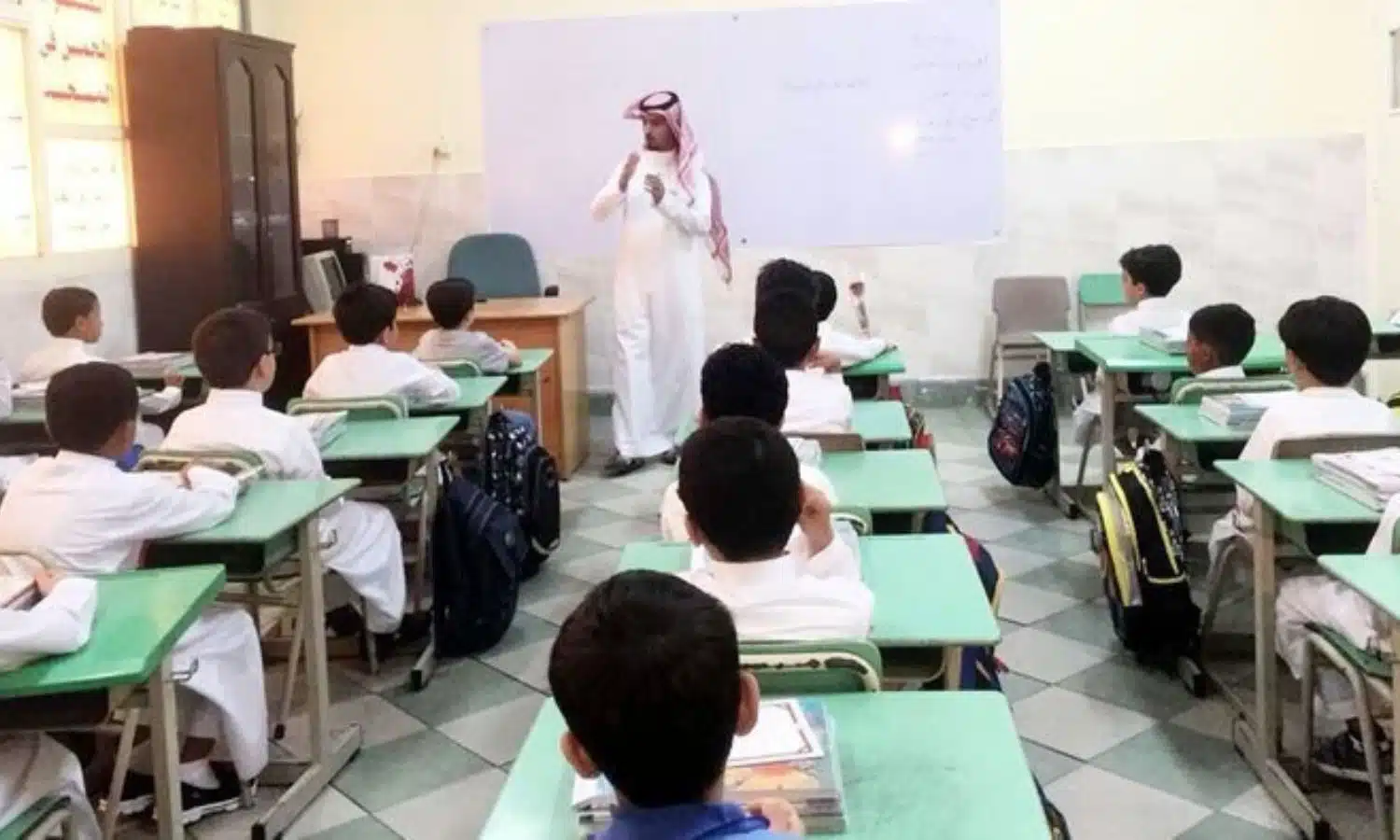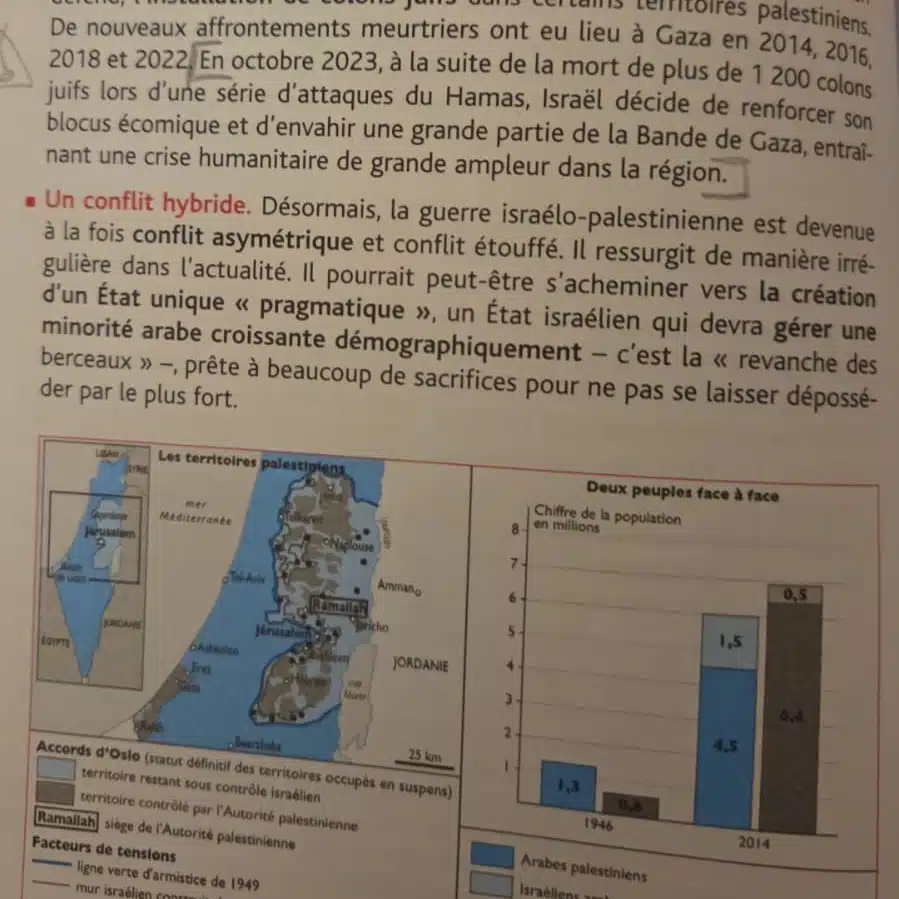A new review of Saudi schoolbooks shows a major decrease in antisemitic content in recent years, although the State of Israel is still not included on maps and is generally referred to as “the Zionist entity.”
The “Saudi Textbooks 2022-23” study — which can be read in full here — was published last week by the Institute for Monitoring Peace and Cultural Tolerance in School Education (IMPACT-se).
“Practically all the previously identified antisemitic material in Saudi Islamic Studies textbooks has now been removed,” IMPACT-se CEO Marcus Sheff stated. “This follows the previous removal of significant amounts of antisemitism in other subjects over the last four years.”
“While all textbook reform is important, Saudi Arabian textbooks are particularly consequential,” Sheff added. “Kudos is due to the Saudi government for this multi-year and systematic removal of Jew hate and moderation of content on Israel in the textbooks of over six million Saudi children, and of many more who study the textbooks outside of Saudi Arabia.”
While Saudi Arabia and Israel officially do not maintain official diplomatic relations, there have been growing signs of normalizing ties between the two countries in recent years, particularly following the signing of the Abraham Accords by Israel with the United Arab Emirates, Bahrain, Morocco, and Sudan.
“The Saudi school curriculum has been reviewed by IMPACT-se since the early 2000s,” the report noted. “The September 11 attacks led to rising interest in textbooks. Questions were raised, in the region and beyond, over the role of school education in radicalizing the Saudi nationals from whose ranks most of the hijackers and Osama bin Laden himself emerged. Since then, the Saudi government has gradually reshaped the curriculum, balancing openness and tolerance with deeply-rooted Wahhabi religious values and traditions.”
“Curriculum reform is the product of several motivations and currents,” it went on to say. “The Saudi blueprint for national change, known as Vision 2030, includes educational reforms and is based on a realization that to meet ensuing challenges and lessen dependence on fossil fuel revenue, the country needs to develop a highly educated, open-minded, entrepreneurial, and patriotic citizenry. No nation can overly rely on foreign workers and foreign powers for its prosperity and security and radical ideologies and policies are self-defeating for peace and prosperity.”
To learn more about IMPACT-se, please visit: impact-se.org












